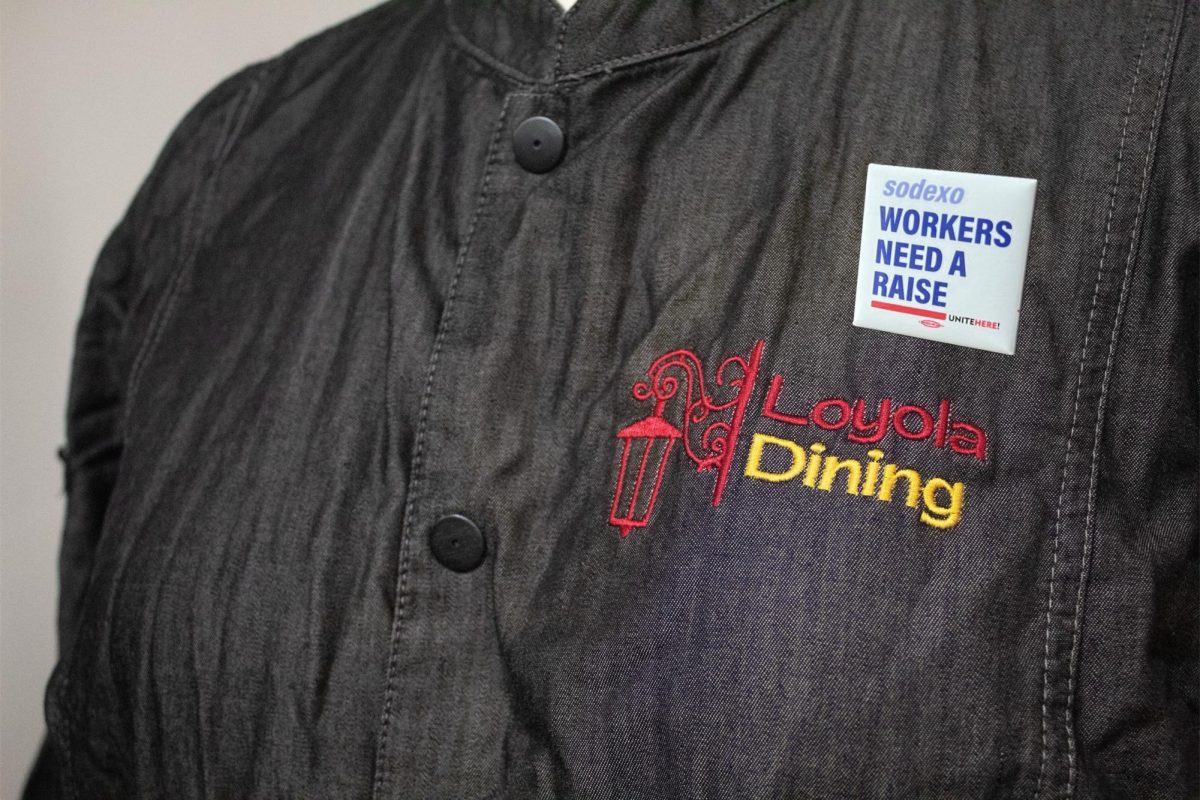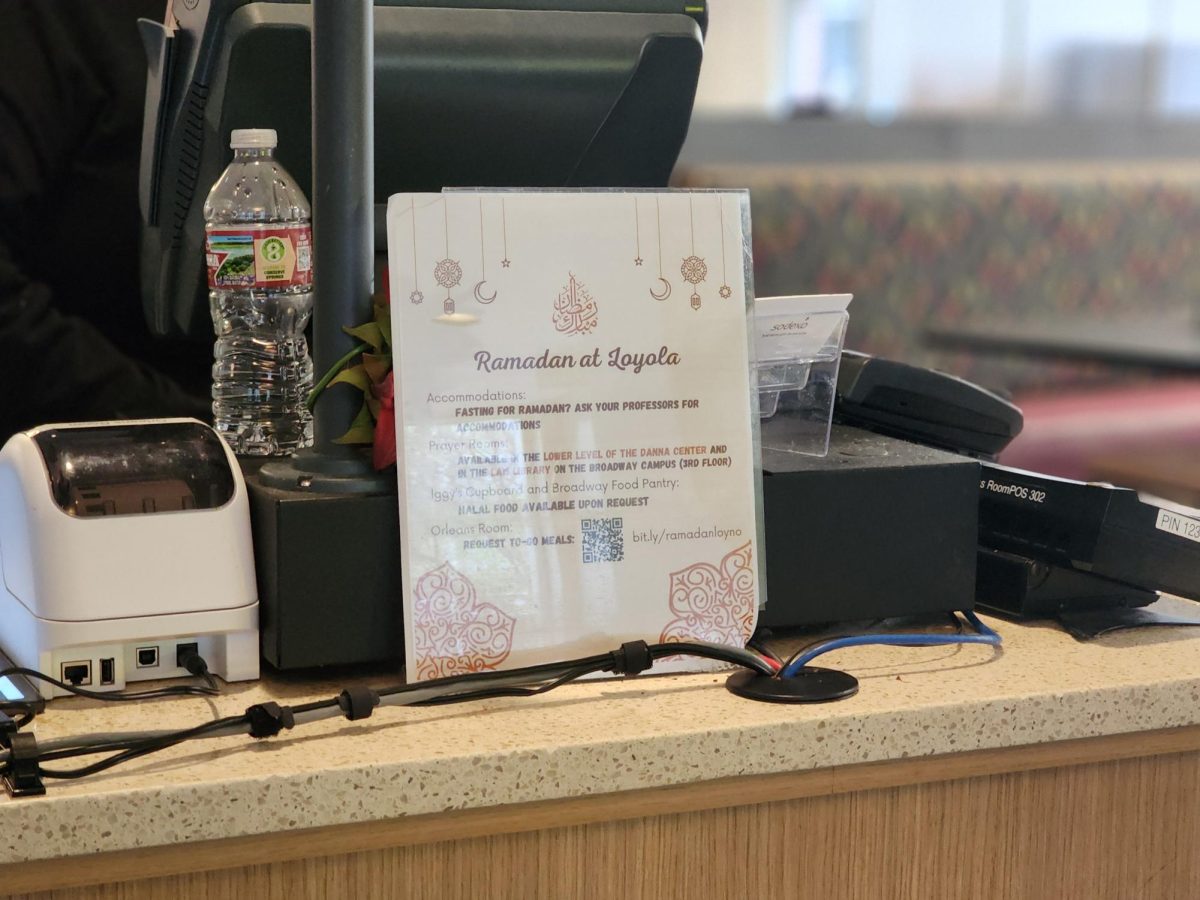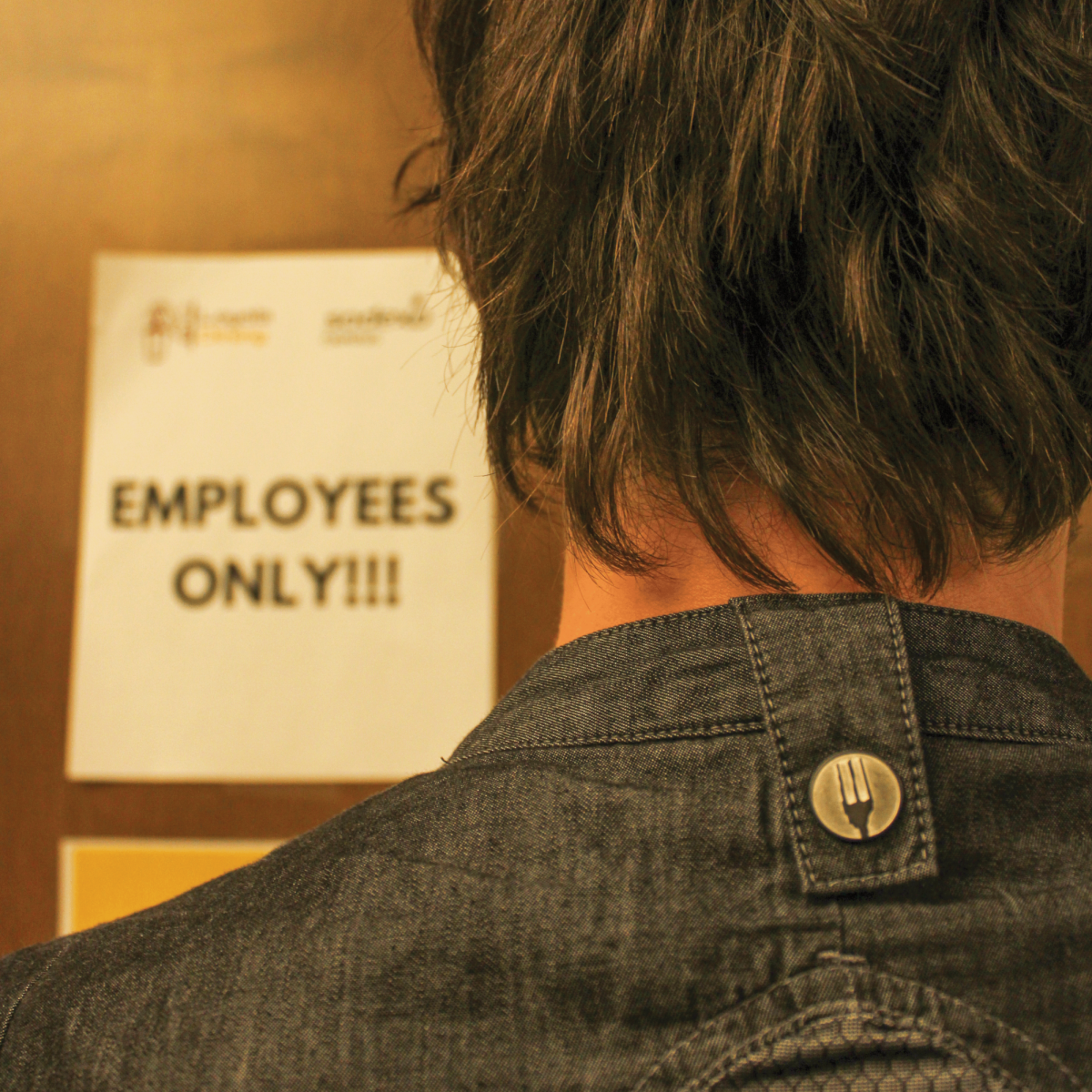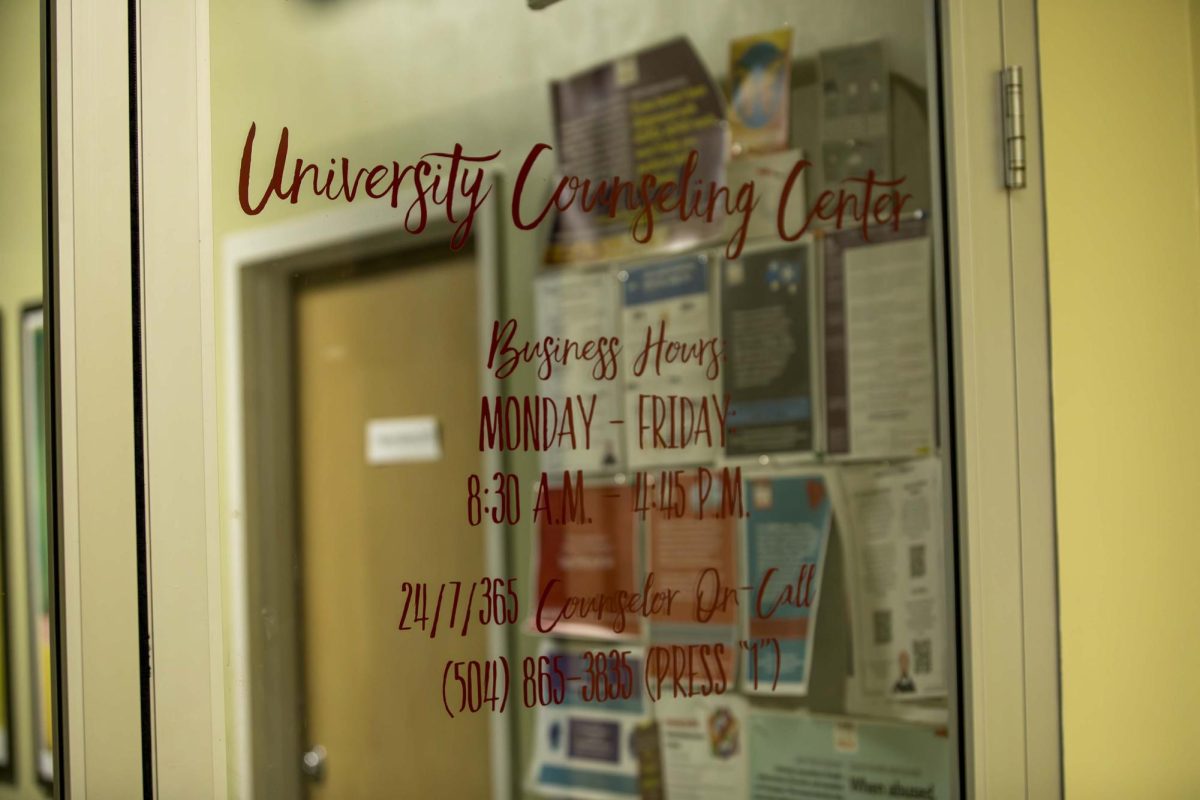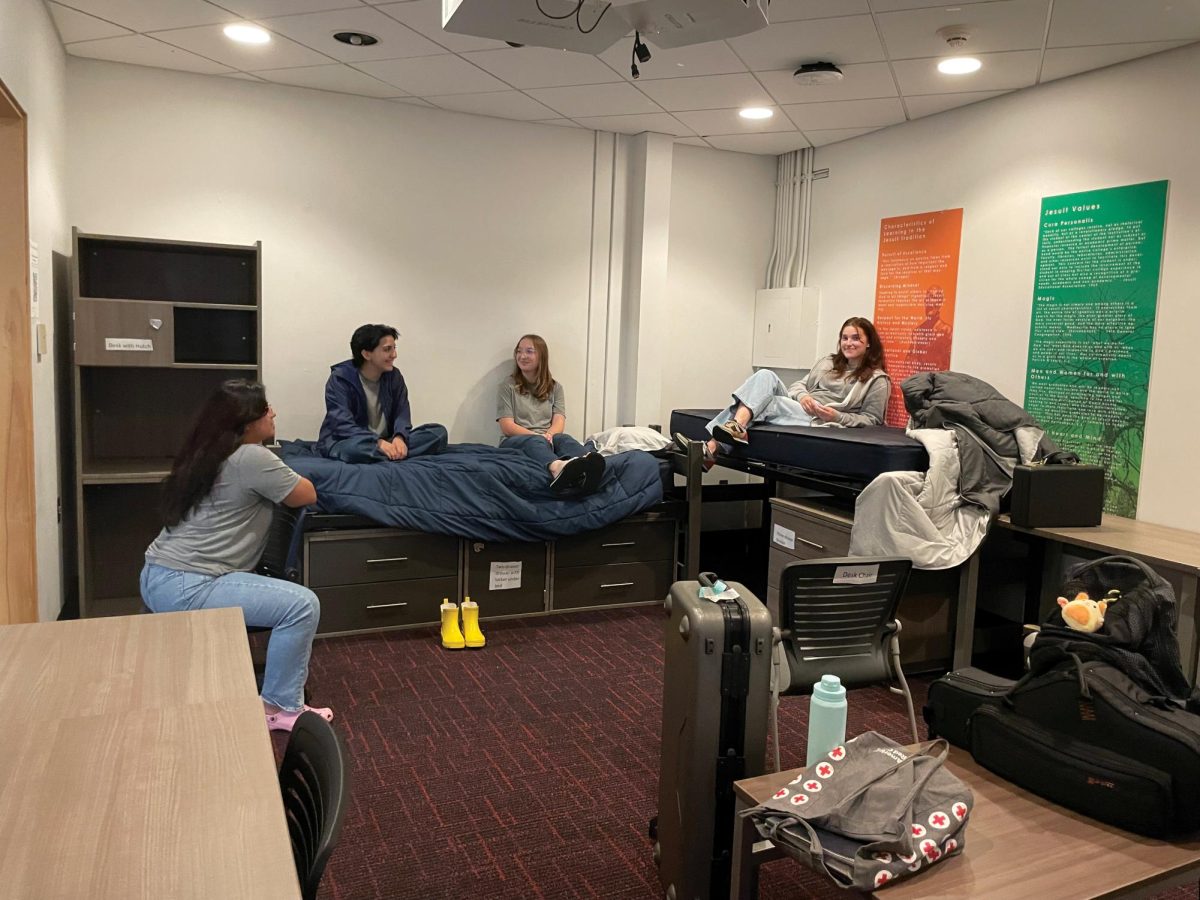Jacqueline Harrison, who has been an employee of Loyola-Sodexo since 2011, said she grew up in the ‘70s watching her father, a union manager, leading strikes and advocating for workers’ rights.
“He didn’t know, but it meant a lot to me to watch him stand up and fight for what [workers] deserved,” she said.
When Harrison caught wind of Samantha Henry’s efforts to form a union, she knew she needed to step in because she has some of the fight her dad had in her.
“I know what’s right, and I know what I – and my coworkers – deserve,” she said.
And after nearly two years of union organizing and months of contract negotiations, Loyola-Sodexo workers won their union and most recently, had their union requests granted in an agreed upon contract.
The contract, which was ratified Feb. 5, offers Sodexo workers an average raise of $1.75 per hour upon ratification, with some of the lowest paid employees getting more than $4 an hour raises upon ratification, and scheduled annual pay raises. It also offers healthcare with no deductibles, more paid time off, and a pension, a union representative from UNITEHERE said.
Harrison said they got a good contract. “It’s a big milestone,” she said. “We went from having a 401K to a pension.”
Harrison also said she used to be one of six employees who had health insurance. The no-deductible plan cost workers roughly 1/3 of what they were paying for the company healthcare plan, and the “gold’ level union health insurance benefits begin in September, according to a UNITEHERE representative.
Union members are also now offered short-term disability at no cost, according to Harrison.
As for the pay increase, she was making a few cents more than $14 an hour, and now she is making $16.50 an hour, which Harrison will see soon, as the pay raise was effective immediately.
Despite achieving this milestone, the path to get there wasn’t easy, as union workers, alongside a union rep, met with the company to negotiate their contract four or five times, Harrison said.
But she said she wasn’t going to give up because in past attempts, their unionization efforts failed, which she blames on fear from coworkers.
“When you don’t know your rights, you’ll let them put fear in you,” she said.
This time, however, Harrison said she was motivated by her coworkers, some of whom have worked for the company for 30 or 40 years.
“I work with a group of good people,” she said.
However, calling and knocking on coworkers’ doors after hours is something Harrison never thought she’d do.
“A phone call is one thing,” she said. “But when you go into their house, that’s something else. But I didn’t get no doors closed on me, which was good, but that’s what was going through my head.”
Harrison said her coworkers were open-minded and willing to listen. She credits their openness as the reason their union efforts were successful.
Harrison said she’s proud of her group of coworkers.
“They stood up, and we succeeded,” she said. “And they are proud of themselves. And I’m proud of them. They really did good.”
Harrison said she also appreciates the efforts of students, which helped a lot.
With their contract confirmed, Harrison said she will now be able to afford to keep her family home that she inherited from her mother and father.
“The area that I’m in is a good area, and you can get a decent amount of money, but I didn’t really want to do that,” she said. “My parents worked hard. And they didn’t owe a mortgage or have to refinance it. I didn’t want to have to do that either.”
Harrison said now she’ll be able to afford renovations to maintain the integrity of her home and get homeowner’s insurance, which she couldn’t afford before, even though her home is in a flood zone.
Before the union, Harrison said to maintain her family and household, it was normal for her to work up to three jobs at a time.
With the new pay increase and benefits, Harrison no longer has to do that.
Similarly, Dedra Wilborn, who’s been a Loyola-Sodexo employee for a year, is happy to have a union to support her.
And she said she’s now able to work toward getting reliable transportation.
“I have to take the streetcar just to get to work, which isn’t always easy,” Wilborn said. “Now that we have guaranteed raises, I can work towards buying myself a new car.”
Harrison said employees are continuing to join the union and not just new ones.
“We still have work to do,” she said. “UNITEHERE is a union, so we have to stick together.”
Maria DiFelice contributed to the reporting.







